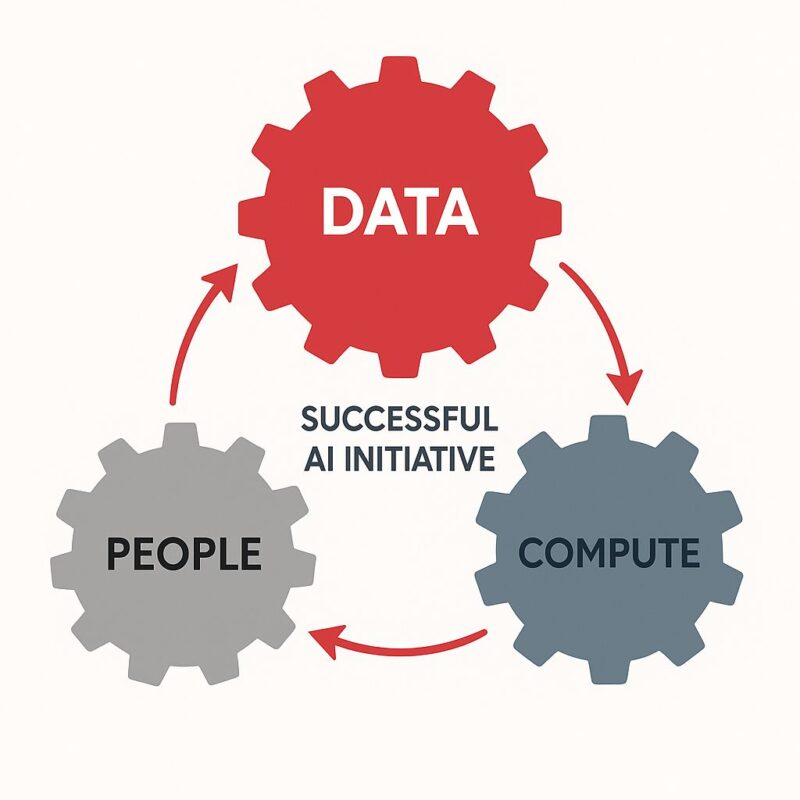Olivier Elemento, Director of Englander Institute for Precision Medicine at Weill Cornell Medicine, shared a post on LinkedIn:
“Data, People and Compute: The Three Pillars of a Thriving AI Initiative.
People often ask me how to set up an AI entity or an AI initiative (we have a thriving AI group at the Englander Institute). My answer consistently comes back to three interconnected components that form the bedrock of any successful endeavor: Data, People and Compute.
Data: The Lifeblood of AI
This is where the journey truly begins, and in my opinion, it’s often the most challenging piece. For AI to flourish, you need abundant, accessible, and annotated data. It’s not enough to simply possess data; it must be readily available to those who need it, and importantly, it must be well-organized and labeled to be intelligible to AI models. I often see cases where data is claimed to be accessible, but in practice, numerous hurdles prevent true access, which poses a significant problem for any AI initiative.
Existing data isn’t always the complete answer. Very often, critical data is missing, necessitating a proactive strategy to produce it. For example, if you want to use AI to create virtual cell models, you’ll likely need perturbation data at a large scale to build these models effectively.
While challenges like data siloing and legacy systems can seem daunting, these have been, and can be, overcome with strategic vision investment and a clear mandate. Unleashing the full power of data requires a broad, organization-wide effort to ensure its quality and accessibility, often involving robust data governance and adherence to FAIR principles. Without a robust data strategy, any AI effort will fall short.
People: The Architects and Users of AI
Beyond the data itself, you need the right human capital. This means having individuals capable of both creating AI models and effectively utilizing them. A key aspect of their role involves setting a clear strategic vision and establishing specific priorities for AI deployment.
Collaboration, particularly interdisciplinary collaboration, is paramount here; diverse skill sets, from data scientists to domain experts, must work in concert. I think a critical mass of talent is essential, as isolated efforts rarely lead to transformative outcomes. It’s about building a community of practitioners who can learn, innovate, and apply AI solutions.
Compute: The Engine for AI Innovation
Finally, AI initiatives demand significant computational power. Abundant compute is an absolute necessity, not a luxury; it’s required for training complex models, processing vast datasets, and deploying AI at scale. Whether it’s on-premise solutions or cloud-based infrastructure (or more likely a combination of both), ensuring readily available and scalable compute resources is non-negotiable for pushing the boundaries of what AI can achieve.
When these three elements — data, people, and compute — are strategically integrated and cultivated, they create a powerful engine for successful AI initiatives, transforming aspirations into tangible results.”

More posts featuring Olivier Elemento on OncoDaily.


